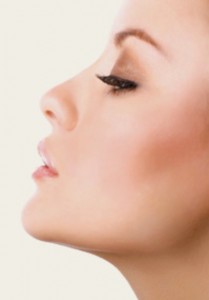After getting a rhinoplasty, some individuals are confused as to exactly what steps should  be taken to care for their healing nose. While a rhinoplasty can be painful, there are many steps that can be followed to expedite the healing process and minimize both swelling and discomfort.
be taken to care for their healing nose. While a rhinoplasty can be painful, there are many steps that can be followed to expedite the healing process and minimize both swelling and discomfort.
Individuals can choose to follow different guidelines for activities, their diet, medications and wound care to alleviate the complications following their rhinoplasty, making a recovered nose and face a reality in just a short period of time.
What Activities Will Help During the Recovery Process?
There are many different positions and actions that a person can take to help with the swelling and bruising of their nose and face during the recovery process. This includes:
- Sleeping In An Upright Position – Because lying down can exacerbate swelling, it is helpful to sit and sleep with your head elevated as much as possible. This also helps to keep drainage manageable for the first few days following the procedure, where mucus and blood is commonly secreted from the nose.
- Daily Activity Limitations – While walking is encouraged, avoid straining yourself and vigorous exercise where possible, such as running, aerobic exercise and heavy lifting (anything over 10 pounds). DO NOT blow your nose for at least 7 days and avoid having hot showers. Also, patients may not drive for at least 24 hours following their surgery due to different medications that may still be in their system from the procedure.
Are There Dietary Changes That Can Help With Recovery?
After surgery, a patient may return to their normal dietary routine. There are no secret foods to help with the healing process, although drinking a lot of liquids can help your body recover from anesthesia and surgery as well as following a healthy diet with lots of fruit and veggies. You may find food that requires heavy chewing uncomfortable, so stick to simple, softer foods. As with any surgery, whether it be Breast Enlargement, Tummy Tuck or Rhinoplasty, smoking is prohibited!
Can Medications Help Recovery From A Rhinoplasty?
Of course pain medicine and certain other medications might help with a patient’s unique symptoms. However, not every patient experiences the same pain or complications as others. For this reason, there is no generic list of medications to give patients to take over the weeks following their surgery.
Common medications after surgery include:
- Pain Medications – Pain medicine is prescribed to all patients but should only be taken when needed. Paracetamol is preferred if a patient has mild or manageable pain.
- Antibiotics – Sometimes antibiotics are required for proper healing and reduce the risk of infection. If prescribed antibiotics, you should take the entire dosage and amount prescribed, even if symptoms lessen.
Are You Considering A Rhinoplasty?
If you want to discuss Rhinoplasty or any Cosmetic and Plastic Surgery procedures please call us at Pure Aesthetics on 9252 9262, or Contact Us for an appointment to see our Sydney Plastic Surgeon, Dr Steve Merten.




